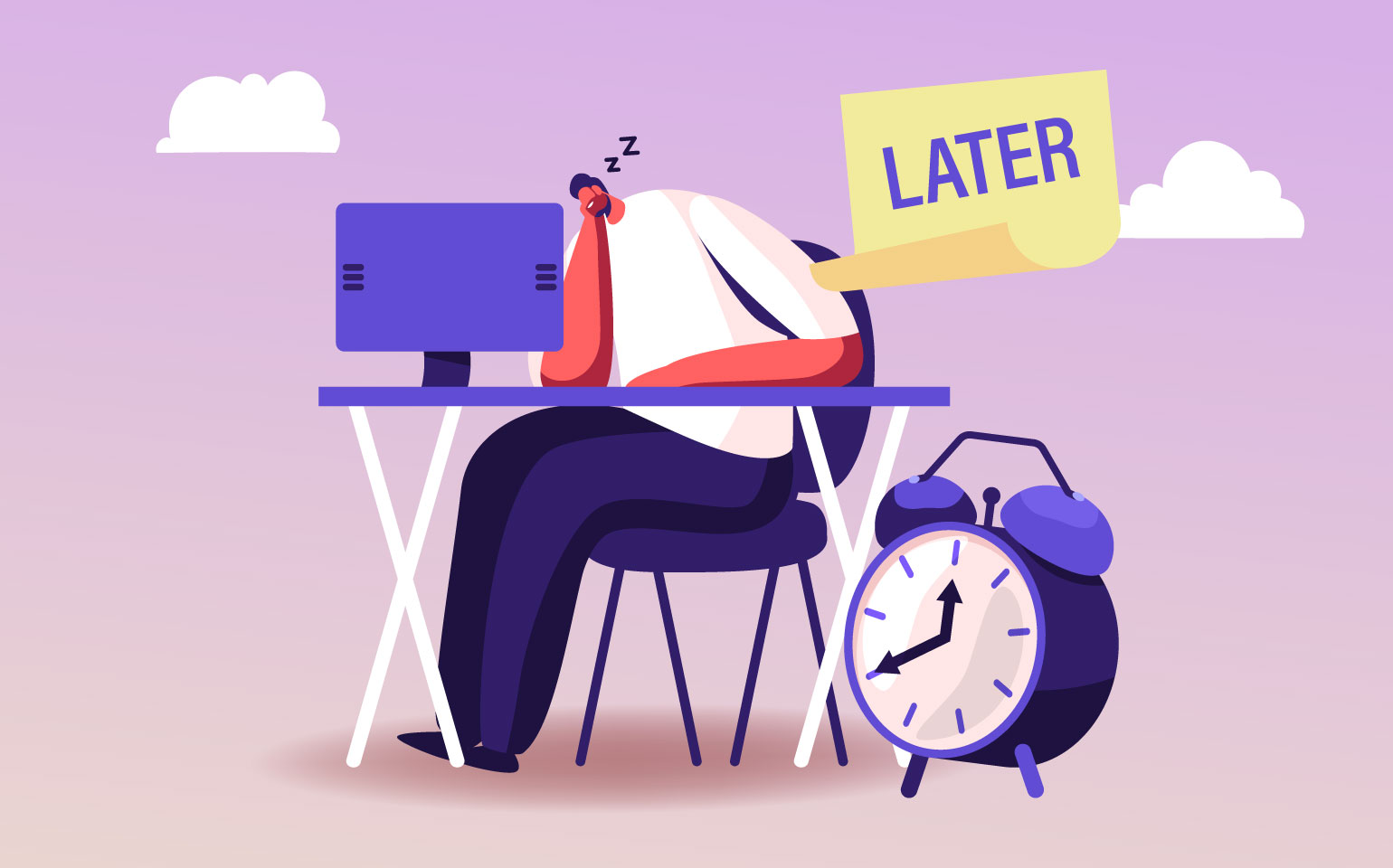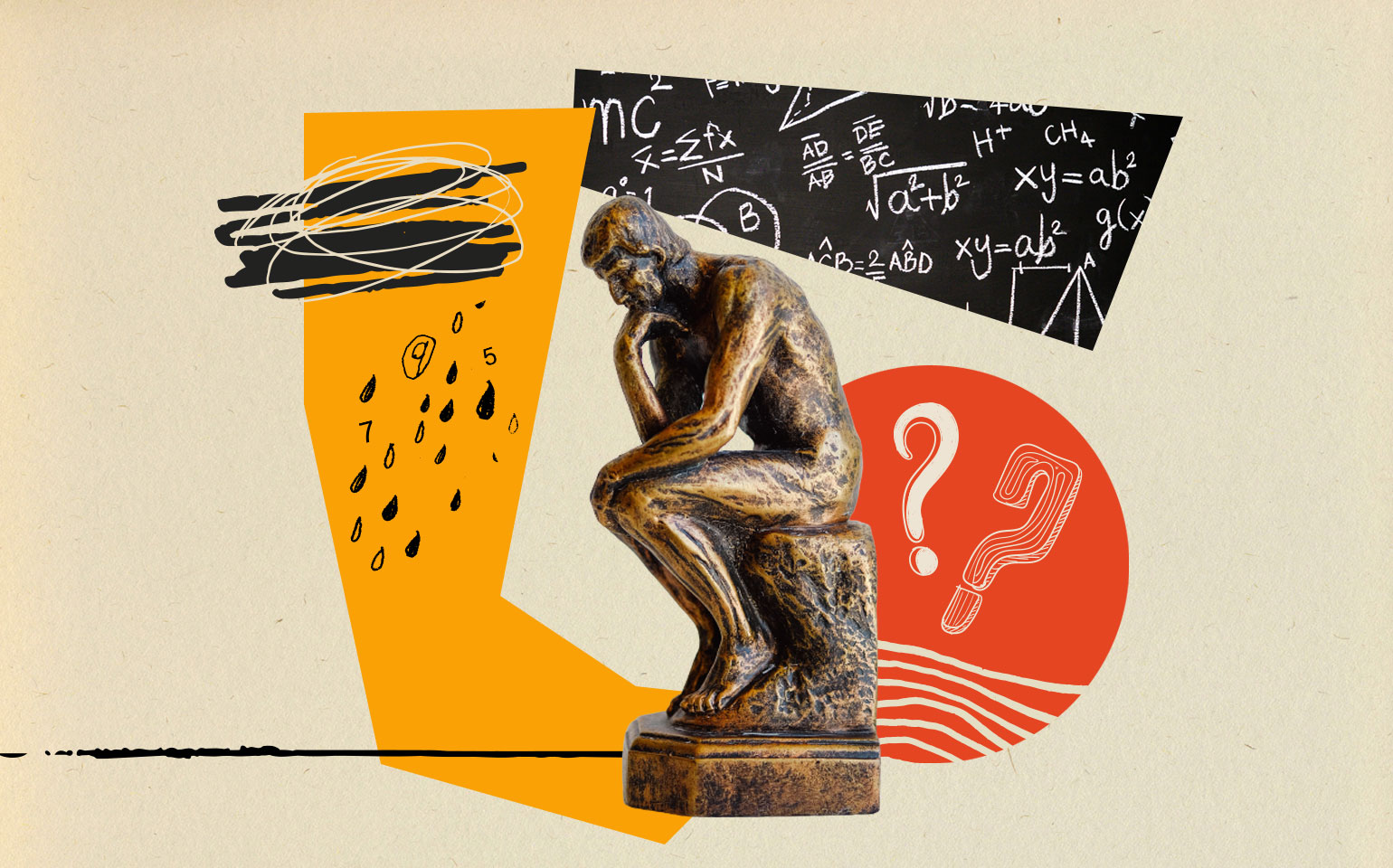
The Price of Procrastination
Countless students, including myself, relate to the phenomena of neglecting and avoiding work in exchange for blissful yet often unproductive leisure time. Procrastination is known as an unhealthy work habit that can cause stress and anxiety and can often lead to a loss in quality of work. The most common forms of procrastination that I observe—and practice—include waiting to study for a test the night before and rushing through a project or essay days or even hours before the submission date. Although some can argue that procrastinating has advantages, they are often short-lived and are gravely outweighed by the negative effects.
When transitioning from middle school to high school, it is important to realize that your lifestyle, study habits, and workload will change. I believe that the ninth and tenth grades are about understanding which study habits and learning styles best fit you, as the workload is relatively lighter than it is in grades 11 and 12. For example, some people—such as myself—may find that they work best in short bursts of effort, followed by small breaks. Others, however, may find it more efficient to study for long, dragging periods of time before taking a longer and more substantial break. It’s all about experimenting to discover which methods allow you to produce the highest quality of work while also being enjoyable.
This relates back to the topic of procrastination and understanding why it is such a common and negative study habit.
Oftentimes students, including myself, avoid tasks simply due to laziness, and so we sacrifice maintaining a high quality of work for leisure time. As the famous proverb goes; good things take time, which is also consistent with the work we do.
The more time and effort we put into creating and revising our work, the better it becomes. Often, the lack of effort stems from a lack of interest or understanding of the topic. By observing our own habits, we can see that most commonly we put in more effort into subjects we enjoy and understand. Due to this fact, we can also observe how easy it is to utilize procrastination as an excuse as well as how hard it is to make certain work our main priority when we are disinterested in the subject.
Procrastination hinders the quality of our work by giving us less time to create and revise it, but it can also affect our mental state. Even though you may enjoy the leisure time you have, the underlying stress of knowing you have an important deadline approaching will silently create stress and anxiety in the back of your mind. Instead, it would take a lot off your mind if you first completed the task at hand before indulging in your well-deserved leisure time, allowing for you to truly enjoy the time without the stress of any impending deadlines.
I found that when transitioning from grade 10 to 11, the workload increased drastically, and therefore falling into my common habit of procrastinating wasn’t going to be feasible anymore. I was forced to create new disciplines that could help me replace my previous habit of procrastination. The first, as mentioned before, was understanding which work habits worked best for me and then experimenting until I found a work process that was effective. The second was to utilize a calendar and set reminders for myself as this jog the memory and eases the stress of trying to remember all the important dates, goals or tasks that need to be done. The third and most important was to reward hard work and to celebrate small achievements on the journey of my overarching goal.
Rewards and micro celebrations, as I call them, provide an incentive to complete work on schedule and often caused me to want to complete work faster, as there are a set of smaller goals that I am working towards. However, not all students are perfect and even I still procrastinate on school projects, essays and studying for tests.
Although procrastination can give us enjoyable leisure time it is often at the cost of the quality of our work and our mental wellbeing. The anxiety caused by procrastination is often draining and can pile up, leading to long durations of stress. As you transition from middle school to high school or from grade 10 to 11, it is important to understand that you will need to alter your study and work habits because of the increased workload and responsibilities put upon you. It is helpful to experiment with what work methods work best for you and use reminders, rewards, and calendars to relieve stress and to ultimately become a more productive and happier student.



